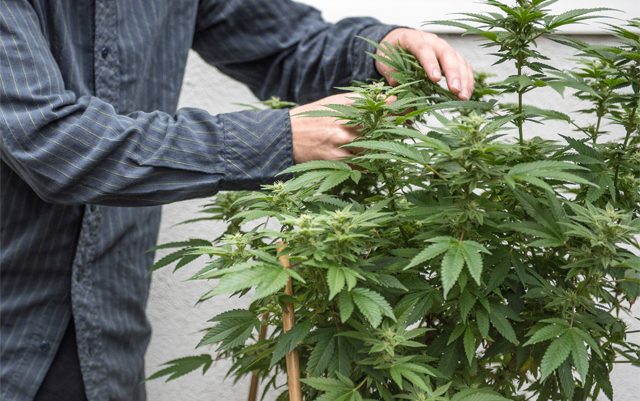With cannabis legalization spreading across the U.S. and around the world, the last couple of decades – and especially the last few years – have been an amazing time for learning about the cannabis plant and all the potential it truly has both in medicine and daily life.
Canadian researchers looking at cannabis as a pain management option will soon publish their study in the journal Phytochemistry. But, the findings of the study were published earlier this week and announced that researchers have uncovered pain-killing molecules in cannabis that are 30 times stronger than your average aspirin. Considering the continued need for an alternative to opioids for pain management in various conditions, this research is not only interesting, but necessary.
“There’s clearly a need to develop alternatives for relief of acute and chronic pain that go beyond opioids,” said Tariq Akhtar, a University of Guelph biology professor and author of the study, in a statement on the newly released research. “These molecules are non-psychoactive and they target the inflammation at the source, making them ideal painkillers.”
The pain-relieving molecules they discovered are now called cannflavin A and cannflavin B. Both are non-psychoactive flavonoids that are found in only trace amounts in your average marijuana plant.
“Being able to offer a new pain relief option is exciting, and we are proud that our work has the potential to become a new tool in the pain relief arsenal,” said Steven Rothstein, another biology professor at the Ontario university who worked on the study.
However, it’s their ability to fight off inflammation – therefore reducing pain – that researchers are most interested in. And though these properties of cannabis are not new, understanding the genetics that create these molecules will hopefully enable researchers to “develop a biological system to create these molecules.” This would allow them to be engineered in large enough quantities to potentially be used in medicine as an alternative to opioids and over-the-counter pain relievers like Tylenol and ibuprofen.
“What’s interesting about the molecules in cannabis is that they actually stop inflammation at the source,” Akhtar said, according to the Star. “And most natural products don’t have the toxicity that’s associated with over-the-counter pain relief drugs, which, even though they’re very effective, do come with health risks. So, looking at natural products as an alternative is a very attractive model.”
Most of the time, when we think of medical cannabis, we think of the whole plant, a joint, a packed bowl, a vape cartridge, an edible or a topical – all of which are usually used for the medicinal effects of the primary cannabinoids in the plant, THC and CBD. This new study shows that cannabis may be able to be used in a different way – to utilize molecules that have no psychoactive properties and that could potentially help to directly fight pain, rather than blocking pain receptors in the way that other pain relief medications do. Hopefully, this study will lead to a safer and easily accessible alternative for the millions who fight chronic pain every day.






